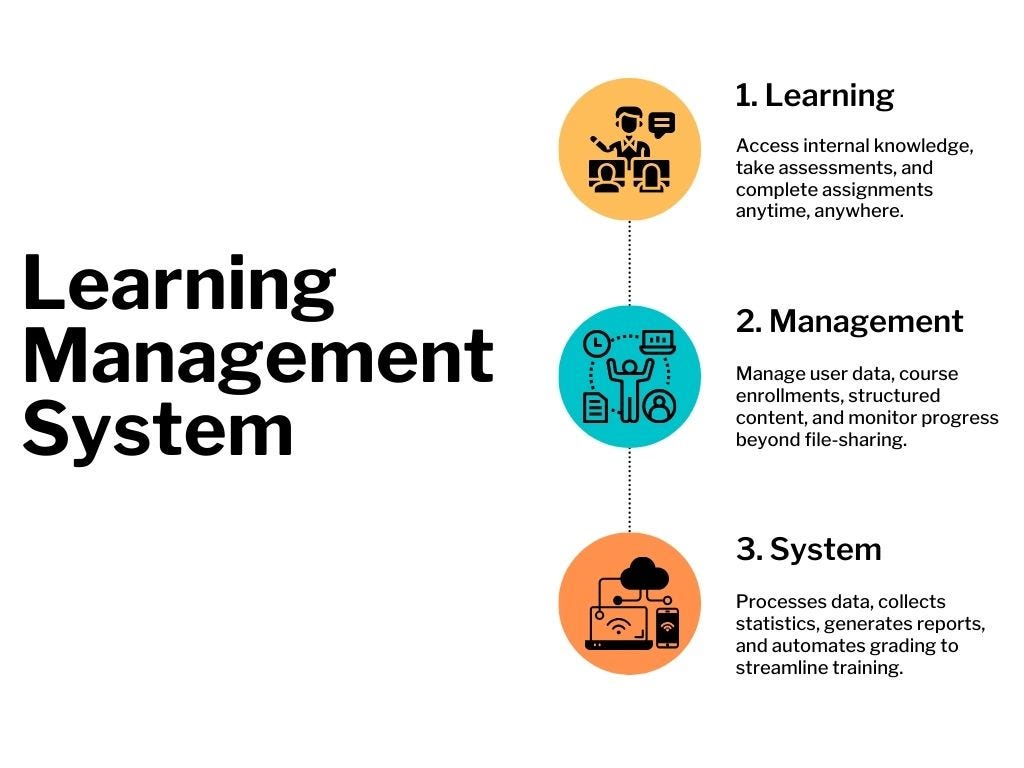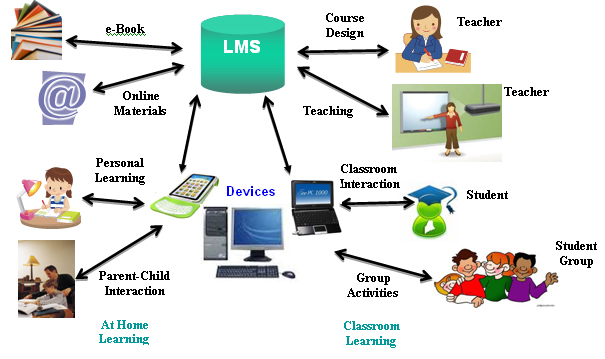The Ultimate Overview to Picking the Right Learning Management System
Picking a proper Knowing Management System (LMS) is a critical decision that can significantly affect educational performance and overall organizational objectives. With a huge selection of choices available, it is necessary to take into consideration different variables such as user-friendliness, material compatibility, and analytical capacities. Furthermore, recognizing pricing structures and assistance systems can affect the lasting practicality of your option. The nuances of these factors to consider increase important inquiries that warrant exploration, particularly as the landscape of electronic discovering remains to advance. What are the crucial aspects that can make or break your LMS selection?
Comprehending Understanding Management Solution
In the context of contemporary education and learning and training, a Knowing Monitoring System (LMS) functions as a crucial device for supplying, tracking, and taking care of training content. An LMS facilitates the organization of academic sources, enabling institutions and companies to develop a central hub for discovering products. This system sustains various finding out techniques, including on-line programs, mixed knowing, and typical classroom settings.
LMS platforms are designed to boost the understanding experience by giving an organized environment where learners can access content at their benefit. They frequently include features such as analyses, development monitoring, and reporting tools, which aid instructors monitor pupil efficiency and engagement. In addition, LMSs can be tailored to meet the specific needs of different learners and organizations, permitting tailored instructional experiences.
The integration of an LMS right into educational settings also advertises collaboration among learners and instructors, fostering a sense of community with discussion online forums and team tasks. As companies progressively identify the importance of continuous knowing and development, the function of LMSs in helping with effective training remedies proceeds to grow, positioning them as indispensable possessions in the instructional landscape.
Secret Attributes to Think About
When choosing a Knowing Administration System (LMS), numerous vital attributes call for careful factor to consider to ensure the system lines up with academic purposes. Firstly, user-friendliness is essential; a straightforward interface facilitates convenience of navigating for both students and administrators.

Integration with existing tools is one more substantial facet; the LMS should effortlessly get in touch with tools like CRM systems, video clip conferencing platforms, and material repositories. canvas singapore. Mobile compatibility is increasingly crucial, as students typically prefer access to sources on-the-go
Furthermore, customization options enable establishments to tailor the LMS to their particular branding and pedagogical needs. Last but not least, consider the platform's scalability, ensuring it can suit future development and changes in user need. Prioritizing these vital features will certainly assist in selecting an LMS that efficiently improves the finding out experience and meets institutional objectives.
Rates Versions and Budgeting
Budgeting for a Learning Management System (LMS) requires a complete understanding of different rates versions to make certain a sustainable financial investment. Organizations has to review their certain requirements and long-lasting goals while thinking about the economic implications of each LMS option.

In addition to the base prices, organizations look at this site need to also consider possible extra costs such as implementation, maintenance, and assistance services. It is crucial to analyze the total expense of possession over the LMS's lifecycle, consisting of prospective upgrades or additional functions that might be essential as the company grows. By very carefully evaluating these pricing designs and linked prices, companies can make informed choices that line up with their financial restrictions and academic objectives.
Reviewing Customer Experience
Evaluating the effectiveness of a Discovering Management System (LMS) goes beyond economic considerations; customer experience plays a pivotal function in the overall success of the system. A properly designed interface can dramatically improve involvement and retention, making it necessary to assess just how user-friendly the system is for both administrators and students.
When assessing user experience, consider navigational convenience, accessibility attributes, and the responsiveness of the system throughout different tools. An LMS should give a seamless experience, allowing customers to quickly find resources, track progress, and engage with material without unneeded rubbing.
Furthermore, collect comments from real individuals to gauge contentment levels and recognize potential pain factors. Focus groups or studies can offer useful insights into just how students communicate with the system and any kind of obstacles they encounter.
It's also important to examine the degree of customization available within the LMS. An adaptable platform that enables organizations to tailor the user interface and features to their details needs can dramatically boost user involvement. Eventually, a positive user experience cultivates an understanding setting that motivates involvement and assists in knowledge retention, making it a crucial aspect in the selection of an LMS.
Application and Assistance Options
Effectively rolling out a Discovering Management System (LMS) requires cautious factor to consider of both implementation approaches and ongoing support choices. Organizations needs to assess whether they will certainly take care of the execution in-house or collaborate with the LMS supplier.
Ongoing support is just as important to make More hints certain the LMS remains efficient and user-friendly - canvas singapore. Organizations must analyze the kinds of support offered by the supplier, consisting of technical support, customer training, and normal updates. A robust assistance system can help fix concerns swiftly, thereby enhancing user contentment and engagement
Furthermore, take into consideration the accessibility of sources such as individual manuals, FAQs, and on-line discussion forums. These can encourage individuals to repair their own problems and cultivate a sense of area. Eventually, the best application and support choices will not only facilitate a smoother change to the LMS yet additionally add this hyperlink to its long-lasting success within the organization.
Verdict
Finally, choosing an appropriate Understanding Administration System (LMS) requires careful factor to consider of numerous essential variables, consisting of crucial features, rates designs, individual experience, and application approaches. An appropriate LMS not only enhances academic end results however likewise fosters collaboration amongst customers and integrates perfectly with existing devices. canvas singapore. Ultimately, a thorough analysis of these elements will certainly support organizations in attaining their academic objectives and making sure a successful understanding environment for all stakeholders involved